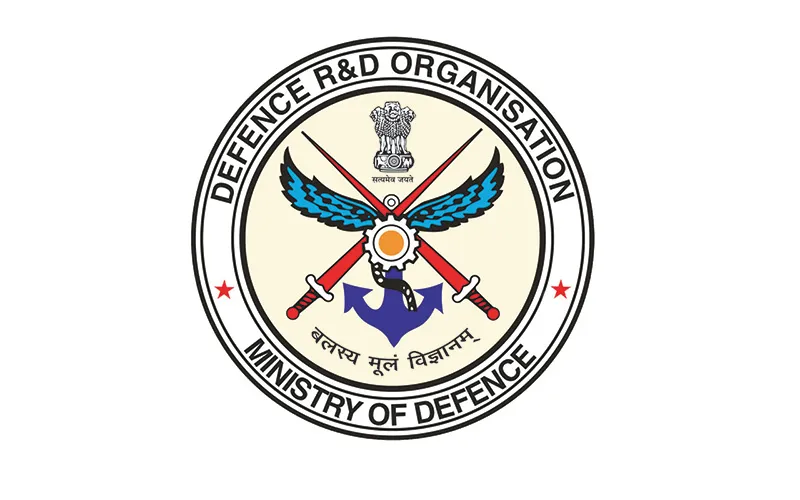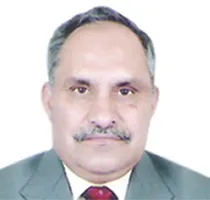-
CENTRES
Progammes & Centres
Location
Cost and time over-runs have reportedly led to losses of approximately Rs29,000 crore in the DRDO; some 10 projects have been delayed for over five years. The Armed Forces continue to be woefully short of modern weapon systems, ammunition and a vast range of critical equipment.

There has been some anguish in the media over the rather peremptory manner in which the Defence Research and Development Chief, a reputed missile scientist, Dr Avinash Chander, has been given the marching orders. This was ostensibly done, as per statements attributed to the Defence Minister, to bring in younger talent. This is ironic as our indomitable and work-oriented Prime Minister is of the same age as Dr Chander and has just come into the job. Nonetheless, the fact remains that while the reasons for his departure may be debatable, Dr Chander's dispatch could not have come sooner.
The DRDO has the sacred responsibility to give our defence forces the vital technical edge that will make the difference between victory and defeat, and ensure that our forces are never out-gunned or poorly equipped. In his capacity as a DRDO chief, Dr Chander was responsible for an organisation with over 25,000 personnel, including approximately 8,000 scientists, distributed over 52 laboratories, conducting research in fields as varied as aircraft and missiles to vegetables, with over 500 ongoing projects. In its 57-year existence, DRDO has had a few notable successes, especially in the fields of missiles and radar systems, but is notorious for its penchant for reverse engineering and its inability to complete projects on time or within budget, be it the Light Combat Aircraft, the Arjun Tank or the Indian Small Arms System project, to name just a few.
Cost and time over-runs have reportedly led to losses of approximately Rs29,000 crore; some 10 projects have been delayed for over five years. The Armed Forces continue to be woefully short of modern weapon systems, ammunition and a vast range of critical equipment. The DRDO's failures have also impeded the planned and coordinated induction of weapons and equipment, forcing the Government into ad hoc procurement or accepting critical voids that adversely impact defence preparedness.Moreover, it has meant that we still continue to import over 40 per cent of our defence requirements. In all fairness though, the Ordinance Factories, the Ministry of Defence and the Armed Forces themselves cannot escape some of the blame.
As for Dr Chander, he had to go if the Government had to retain realistically retain good governance as the cornerstone of its philosophy, given what the Parliamentary Standing Committee on Defence has had to say about the workings of the DRDO. In a report presented in Parliament on December 22, 2014, the committee criticised DRDO for chronic inefficiency and delays in executing numerous programmes. It noted that "projects are not executed according to their schedule, and inordinate delays in execution of almost all the projects
Also, the lack of focus, poor attitude and bad work culture at DRDO is best exemplified by the fact that one of its laboratories in Pune, the Research & Development Establishment, spent one year and five crore rupees to build a silver-plated chariot, which was donated to the Alandi Temple. Worse, a senior scientist, who objected to this absurd venture and complained to the Central Vigilance Commission, found himself transferred and harassed to such an extent that he has had to approach the Bombay High Court for justice.
In this particular instance Dr Chander certainly needs to explain why one of his laboratories was wasting time and money on an infructuous project that had no relevance to the defence services. He cannot escape accountability for not fulfilling the sacred responsibility that had been entrusted to him. Let us hope his successor is able to meet the immense challenges facing the organisation for, as the Prime Minister once remarked, the world will not wait for us.
(The author, a retired Army officer, is a consultant with the Observer Research Foundation)
Courtesy: The Pioneer
The views expressed above belong to the author(s). ORF research and analyses now available on Telegram! Click here to access our curated content — blogs, longforms and interviews.

Brig. Deepak Sinha (Retd.) was Visiting Fellow at ORF. Brig. Sinha is a second-generation paratrooper. During his service, he held varied command, staff and instructional appointments, ...
Read More +